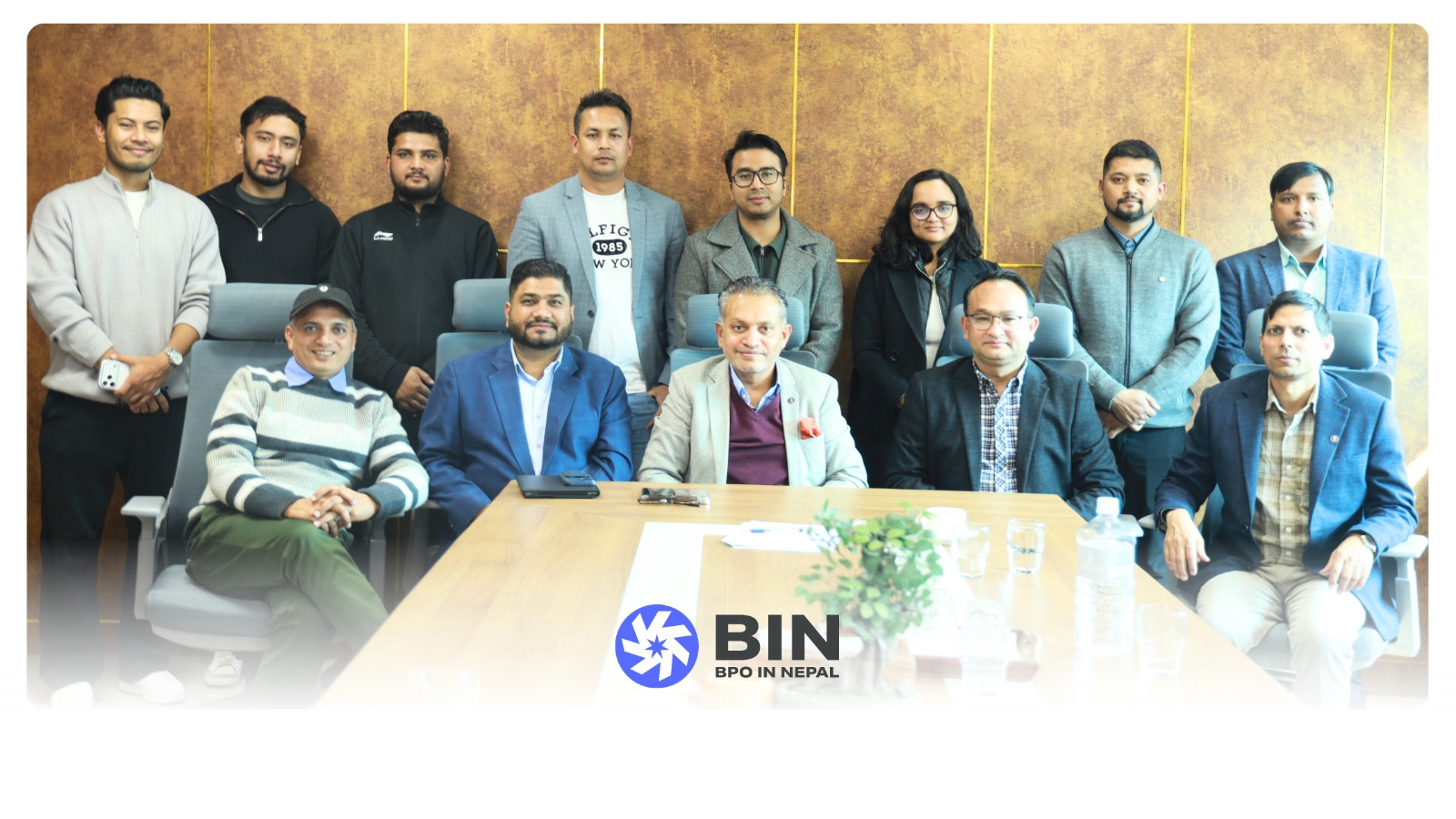Data Privacy & Legal Outsourcing: How BIN Ensures Confidentiality

By Samunnati Shrestha, Creative Lead at BIN (Customer Support Services)
Category Legal Process Outsourcing (LPO)
Published June 26 2025
When law firms and corporate legal departments partner with external providers, data privacy is always the guiding concern. Clients expect their confidential documents, legal strategies, personal data, and commercial secrets to be protected off-site as rigorously as they would be in-house. As a leading LPO provider based in Nepal, BIN has built its entire service model around robust confidentiality and ethical handling of sensitive information. In this article, we explore extensively how BIN ensures airtight data protection through policies, technology, staffing, culture, and continuous audit, delivering world-class legal outsourcing you can truly trust.
A Privacy-Centric Governance Structure
At BIN, confidentiality is not just an IT feature; it is woven into our organizational DNA. The first line of defense is our governance structure that clearly articulates ownership, accountability, and incident escalation procedures.
A Chief Privacy Officer collaborates with legal, security, and IT teams to maintain and review policies. These documents define data classification standards, access protocols, retention schedules, and breach response steps. They also align with international regulations such as GDPR and CCPA.
By embedding these principles into board-level oversight, BIN ensures confidentiality is never an afterthought.
Rigorous Client Onboarding and Contractual Safeguards
Every new legal outsourcing engagement with BIN begins with a comprehensive client onboarding process. Contracts include detailed clauses on data access, permitted use, jurisdiction, indemnities, and breach notification timelines. Service level agreements define roles, responsibilities, and metrics for data security. Before access is granted, clients receive a tailored data handling protocol including definitions of confidential data, authorized personnel lists, storage methods, and tools to be used. Clients are free to audit this protocol before work begins. In doing this, we establish transparency and build trust right from the start.
Strict Access Controls and Identity Management
To ensure that only authorized staff can access sensitive legal data, BIN enforces multi-factor authentication across systems. VPNs or dedicated secure gateways are used for remote access. Role-based access control models prevent unnecessary exposure by limiting user permissions. Each document or database has access logs generated and monitored. Permissions are granted on a least-privilege basis. When a project ends or an employee leaves, access is immediately revoked. This granular approach reduces insider risk and ensures that data is only available to those actively working on the project.
Advanced Encryption Protocols in Transit and Rest
BIN employs industry-standard encryption methodologies to safeguard client data at all stages. Data in transit travels through encrypted protocols such as TLS 1.3, while stored information is encrypted using AES-256. Key management is centralized and protected within secure hardware modules. Backups, cloud or local, are encrypted at rest and validated frequently through checksum verification.
Even intangible assets like email communications and transcripts are encrypted. Through these layered encryption techniques, BIN ensures your data remains unreadable and worthless to unauthorized parties.
Secure Infrastructure and Physical Safeguards
Beyond digital protections, data privacy involves physical safeguards. BIN operates from secure offices equipped with access card systems, CCTV, and redundant electricity. Servers reside in locked racks with biometric authentication. Workstations have privacy screens and auto-lock features. Portable devices are managed with Mobile Device Management platforms that enforce encryption, remote wiping, and banned features like USB usage.
Additionally, private booths are available for onsite lawyers working on high-confidentiality matters. These measures complement software protocols with real-world security.
Regular Staff Training and Confidentiality Culture
Humans are the strongest asset and potential point of failure in data protection. BIN mitigates this by instilling a culture of confidentiality through mandatory training programs. All staff complete background screenings and sign non-disclosure agreements before being onboarded. Regular refreshers cover phishing, social engineering, secure handling of physical documents, password hygiene, and updated compliance frameworks. Senior staff also participate in tabletop exercises to simulate breaches and improve incident response readiness. By embedding security awareness into company culture, BIN ensures vigilance across every level.
Third-Party Vendor Vetting and App Integration Policies
Today’s outsourced legal services may rely on specialized tools for process management, eDiscovery, document management, virtual conferences, or translation. BIN vets all third-party vendors through a robust due diligence process examining encryption, privacy compliance, breach history, and certifications. Data transfer agreements are signed with formal oversight rights. API connections and file exchange portals are monitored continuously.
BIN does not use consumer-grade apps for confidentiality matters. By ensuring tools align with our privacy standards, we maintain protections throughout the full data lifecycle.
Segmented Environments and Data Isolation
BIN avoids the single-environment pitfalls by operating on segmented networks and project-specific virtual workspaces. This means no cross-project data leakage is possible. Each legal engagement receives its own document repository, entirely separated from others. Users cannot access folders outside their area. Testing or training databases contain synthetic or scrubbed data. Production data is completely isolated. This approach removes the risk of intermingled data while supporting scalable engagement across multiple legal verticals.
Continuous Monitoring and Anomaly Detection
Technology serves not only to protect data but also to track its usage. BIN invests in monitoring tools that flag anomalous behavior. This includes unusual download spikes, off-hours logins, abnormal file access, and excessive copying. Alerts trigger swift investigation by security teams. Audit trails are maintained and reviewed during client check-ins. We also run penetration tests, ethical hacking assessments, and vulnerability scans quarterly. Any findings are remediated immediately, and clients receive redacted summary reports. Such vigilance helps detect incidents early and strengthens defenses continuously.
Data Retention, Disposal, and Secure Archives
Once work is complete, BIN adheres to client-specified retention periods and secure disposal practices. Data is either returned, transferred securely, or destroyed. Hard drives are wiped following NIST standards. Cloud archives are encrypted until expiry and then purged.
Email threads and communication logs are scrubbed. Template revisions are managed through version control, and backup snapshots are time-bounded. Clients receive certificates of destruction when requested. Proper archival and disposal prevents rogue access long after a project ends.
Compliance Alignment with GDPR and Global Standards
While Nepal does not have a data privacy law identical to GDPR or CCPA, BIN aligns internally with those frameworks. Cross-border data flows are managed according to standard contractual clauses. We support clients in ensuring lawful transfer mechanisms are in place. Personal data is handled under privacy-by-design principles. Data subject rights such as access requests or erasure can be accommodated through internal procedures.
Through this alignment, clients from Europe, North America, and Asia can confidently partner with BIN without legal friction.
Building Trusted Auditable Partnerships
BIN believes trust must be demonstrable. To that end, we allow client-led audits or audits by third parties acting on their behalf. Reports from audits are shared with clients along with any remediation plans. This transparency allows clients to evaluate our data privacy systems directly.
BIN invites external assessments of our ISO, SOC2, or ISO27001 readiness even before formal certification. Through this openness we demystify the outsourcing process and provide assurance across all controls.
Disaster Recovery and Business Continuity Planning
Confidentiality also depends on reliability. BIN has comprehensive disaster recovery and business continuity plans. Regular backups ensure no data is lost. Standby hot-site locations exist in independent data centers. Incident response includes communications to clients, timelines, and mitigation steps. Whether the cause is network failure, natural disaster, or cyber-attack, our documented processes and regular drills ensure client work is not interrupted and confidentiality is preserved.
Technology Upkeep and Sophisticated Collaboration Tools
To support secure efficiency, BIN invests in professional collaboration and case management tools. These include end-to-end encrypted conferencing systems, legal project platforms with granular access rights, and centralized document review portals. Password managers and encrypted file shares are mandatory. Client metadata such as matter IDs or access tokens ensures two-way tracking and ownership. All technology stacks undergo regular updates to close vulnerabilities. By ensuring technology is both secure and usable, BIN enables confidential collaboration with international legal teams.
Accountability Through Detailed Reporting and Client Reviews
Delivering data service is incomplete without accountability. BIN provides monthly or quarterly security reports detailing access logs, incident attempts, tool updates, training records, and audit results. Clients have dedicated security contacts. Client satisfaction and confidential surveys feed into our governance process. By reporting on KPIs such as incident response time, log review frequency, and training compliance, BIN brings transparency to data privacy performance.
Empowering Legal Teams to Operate Confidently
The result of this multilayered privacy infrastructure is a working ecosystem where law firms and corporate counsel confidently delegate legal tasks. Whether it’s eDiscovery reviews involving personal data, sensitive contract drafting, or compliance projects with regulated information, BIN ensures the same protections are in place that clients would expect from their in-house teams. Confidentiality becomes an enabler rather than a concern in partnerships.
Future Focus and Adaptive Privacy Posture
Data privacy is not a static achievement. As regulations evolve, technology changes, and attack surfaces expand, BIN continues enhancing its safeguards. Our roadmap includes advanced monitoring through machine learning, zero-trust desktop environments, blockchain-based audit logs, and ISO27001 certification.
By staying proactive, BIN keeps pace with global trends and ensures confidential outsourcing evolves with the world’s top legal standards.
Conclusion
BIN’s commitment to confidentiality is holistic and unwavering. We have built a legal outsourcing model founded on comprehensive governance, cutting-edge technology, secure infrastructure, staff training, client transparency, and continuous improvement. Clients engaging BIN receive not only high-quality legal services but also the assurance that their data is protected at every turn. Outsourcing legal work remains viable only when privacy is guaranteed, and BIN has proven it can meet and exceed those expectations.
If your firm entrusts tasks like contract review, legal research, drafting, compliance, or eDiscovery, BIN offers a secure and private environment that rivals in-house confidentiality. You gain scale, speed, and cost efficiency without compromise. Confidentiality is assured, and your peace of mind is guaranteed.





